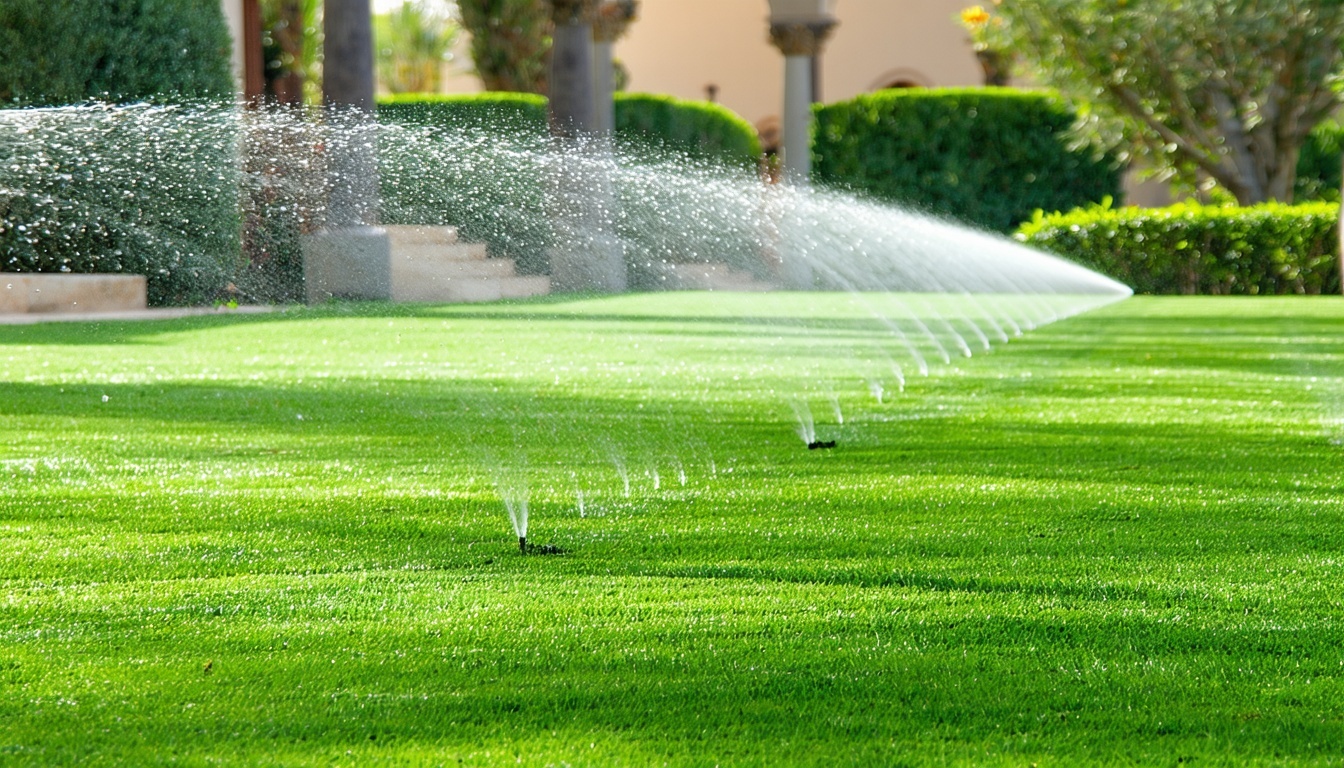Spring Lawn Care: Ensuring Your Irrigation System is Ready
 By
Luke Chapman
·
2 minute read
By
Luke Chapman
·
2 minute read

As winter fades and spring emerges, ensuring your irrigation system is in top shape is crucial for the vibrant health of your lawn, especially in the hospitality industry where first impressions matter.
The Role of a Healthy Lawn in the Hospitality Industry
In the hospitality industry, first impressions are paramount. The appearance of your property can significantly influence a guest’s perception and experience. A lush, well-maintained lawn is often the first thing visitors see, setting the tone for their entire stay. A vibrant lawn not only enhances curb appeal but also fosters a welcoming ambiance that can make guests feel at ease and more inclined to return.
A healthy lawn is a reflection of your commitment to providing a high-quality experience. It can also serve as a versatile space for outdoor activities, events, and relaxation areas, further enhancing the guest experience. Therefore, maintaining your lawn’s health is not just about aesthetics; it’s a strategic investment in your property's overall appeal and guest satisfaction.
Common Winter Damages to Irrigation Systems
Winter can be harsh on irrigation systems, particularly in regions like Cape Cod where temperatures can plummet. Common issues include frozen pipes, which can crack and burst, leading to leaks and reduced water pressure. Sprinkler heads can also suffer damage from snow and ice accumulation, potentially becoming clogged or misaligned. Moreover, the fluctuations between freezing and thawing can cause soil to shift, potentially dislodging pipes and other components. These damages, if not addressed promptly, can lead to inefficient watering, increased water bills, and ultimately, an unhealthy lawn come spring. For more comprehensive guidance on protecting your property during the cold months, check out our Winter Home Preparedness guide.
Moreover, the fluctuations between freezing and thawing can cause soil to shift, potentially dislodging pipes and other components. These damages, if not addressed promptly, can lead to inefficient watering, increased water bills, and ultimately, an unhealthy lawn come spring.
Steps to Inspect and Prepare Your Irrigation System for Spring
As the weather warms, it’s crucial to inspect your irrigation system thoroughly. Start by checking the main shutoff valve to ensure it’s functioning correctly and hasn’t sustained any damage. Next, inspect all visible pipes for cracks or leaks. Turn on each zone of your system and observe for any irregularities in water pressure or sprinkler head performance.
Clean out any clogged nozzles and make necessary adjustments to ensure even coverage. It’s also a good time to reprogram your irrigation controller to reflect the changing seasonal needs of your lawn. By taking these steps, you can ensure that your irrigation system operates efficiently and effectively, promoting a healthy and vibrant lawn.
Benefits of Professional Irrigation Maintenance
While some maintenance tasks can be handled independently, there are significant benefits to hiring a professional irrigation service. Experts have the knowledge and tools to diagnose and repair complex issues that may not be immediately apparent. They can also optimize your system for water efficiency, potentially saving you money in the long run.
Professional maintenance ensures that your system is not only repaired but also fine-tuned to operate at peak performance. This level of care can prevent minor issues from escalating into costly repairs and helps to maintain the overall health and appearance of your lawn, which is crucial in the hospitality industry.
Sustainable Practices for Water-Efficient Irrigation
Sustainability is becoming increasingly important, and water-efficient irrigation practices can help reduce your environmental footprint. Consider installing smart controllers that adjust watering schedules based on weather conditions and soil moisture levels. Drip irrigation systems are another excellent option, as they deliver water directly to the roots, minimizing evaporation and runoff.
Regularly checking for leaks and addressing them promptly can also conserve water. By adopting these sustainable practices, you not only contribute to environmental conservation but also demonstrate your commitment to responsible property management, which can be a significant selling point to eco-conscious guests.








